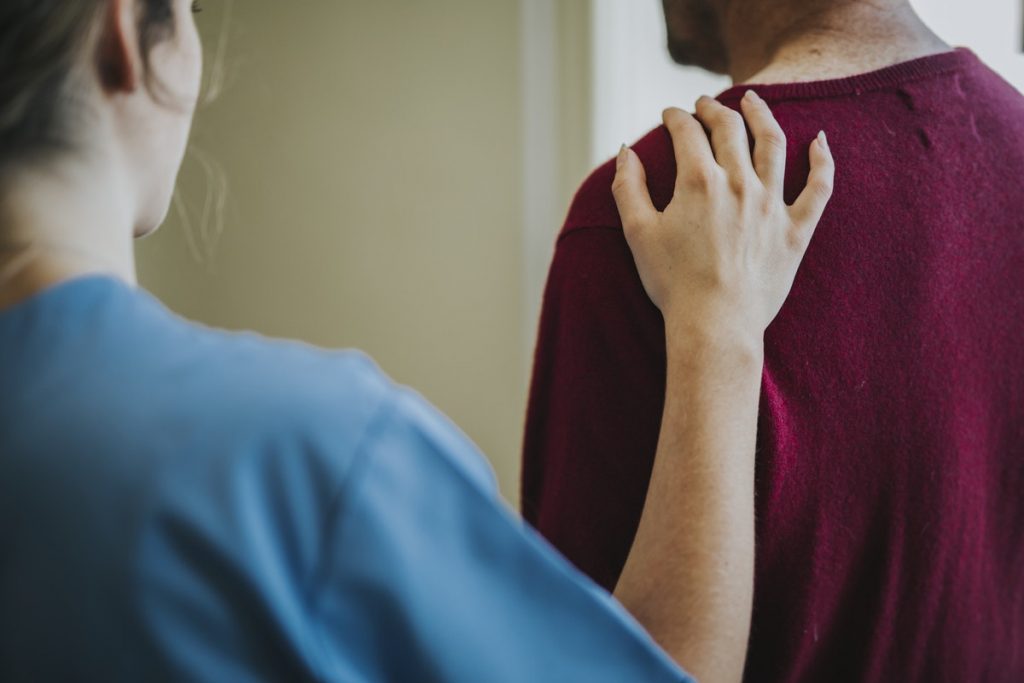Know Your Rights: Mental Healthcare Act 2017
By Arjun Kapoor
This series will explore the rights of Persons with Mental Illness under the Mental Healthcare Act, 2017 [“MHCA”]. This article looks at the MHCA, the lens of a rights-based approach, and your right to access mental healthcare in India. The next piece in this series will examine the basic rights of persons with mental illness that must be protected while receiving mental healthcare and treatment.
The Mental Healthcare Act, 2017: An Introduction
The MHCA is a law that provides for the mental healthcare and treatment of persons with mental illness; and protects, promotes and fulfils their rights during treatment and care. The MHCA was enforced on 29th May, 2018 in pursuance of India’s obligations under the United Nations Conventions on Rights of Persons with Disabilities [“UNCRPD”]. The UNCRPD is an international convention which lays down the rights of persons with disabilities including psycho-social disabilities (persons with mental illness). It requires member States to respect, protect and fulfil the rights of persons with disabilities through legislative and policy measures. Member states who have ratified this convention (India ratified it in 2007) are obligated to amend their laws and policies to make them compliant with the provisions of the UNCRPD.*
ALSO READ: HEALTH INSURANCE FOR ALL: MENTAL HEALTH
The MHCA fulfils its mandate for persons with mental illness in the following ways:
- Right to Access Mental Healthcare and Treatment: guaranteeing the right to access mental healthcare and treatment to all persons without discrimination on any basis
- Charter of Rights for Persons with Mental Illness: recognising the basic rights of persons with mental illness to protect their liberty, autonomy and dignity. Further, the law also lays down safeguards, procedures and authorities to ensure that these rights are protected and fulfilled during the time that such persons are admitted, treated or discharged from mental health establishments
The first part of this series will focus on the right to access mental healthcare and treatment, which has significant implications not only for public mental healthcare in India, but also for all persons with mental illness who have very limited access to any form of mental healthcare or treatment.
According to estimates, the number of such persons is anywhere between 105-138 million (they constitute between 70-92% of the total number of persons who have mental health problems and require some form of treatment and care) [1]. In order to understand the wide-ranging implications of MHCA, one must first be acquainted with the rights-based approach which determines the overall framework of the law.
The Rights-Based Approach
The concept of a legal ‘right’ implies that a person is entitled to a particular public service, freedom or resource which the State has the duty to provide and protect for the person. In other words, a ‘right’ implies the duty of the State to take active measures for putting in place necessary infrastructure, processes and mechanisms so that persons can enjoy the right. At the same time it also implies measures to ensure that the State itself or other individuals cannot deprive anyone from enjoying this right. In case the right has been violated, denied or not fulfilled then the person is entitled to approach a court of law and ask for remedies such as enforcement of their right, or compensation in case their right has been violated.
A rights-based approach [RBA] is central to implementing the MHCA. The RBA recognises that all persons have basic human rights and must be empowered to exercise their rights. Thus, human rights principles such as equality, non-discrimination, participation, accountability and transparency are required to be integrated into the design and implementation of programmes and policies for providing mental healthcare and treatment [2]. Further, duty-bearers (government officials, law enforcement agencies, and other authorities) have to be trained to implement these principles in their practice. In this way the RBA seeks to address inequalities, unjust power-relations and discrimination in the provision of mental healthcare and treatment which have an adverse impact on the rights of persons with mental illness [2].

Right to Access Mental Healthcare and Treatment
The MHCA is the first law in the country to guarantee every person the right to access mental healthcare and treatment. It is important to recognise that this is a huge moment for healthcare in India. At the time the MHCA came into force, the right to health was already recognised as part of the fundamental right to life under Article 21 of the Constitution of India. The Supreme Court in several of its judgments held that the right to health was essential to live a life with dignity and was a constitutional goal to be fulfilled by the State [3]. However, the Parliament had never passed a statute or law that recognised the constitutional right to health and placed a duty on the State to provide healthcare services. This can be attributed to the fact that health is a socio-economic right and the State has limited resources to ensure that all persons are guaranteed the same as a fundamental right. However, with the MHCA coming into force the State is now duty-bound to put in place the necessary infrastructure, budgets and human resources for ensuring that all persons can access mental healthcare and treatment.
ALSO READ: MENTAL HEALTH AND EMPLOYEE RIGHTS
But how does the MHCA envision the same? What obligations does it place on the State to ensure that mental healthcare and treatment is accessible for all persons? The following section explains the scope of the right, and the duties of the State:
What is the right to access mental healthcare and treatment?
According to the MHCA, the right to access mental healthcare and treatment means that a person can access mental healthcare services run or funded by the Central or State Governments. In other words, mental health services include any form of mental healthcare or treatment which is provided at mental health establishments run or funded by the Government. The law does not include private service providers within the scope of this right. The rationale behind is that it is the State’s responsibility and duty to provide public services such as healthcare to its citizens. Thus, it is the government of the day which has to be held accountable in a court of law if a person is unable to access mental healthcare services.
The MHCA breaks down the right to access mental healthcare into five components. These aspects flow from the right to the highest attainable standard of physical and mental health mentioned in Article 12 of the International Covenant of Economic, Social and Cultural Rights [4]. According to these components, mental health services must be:
- Affordable: Mental health services should be affordable for all persons. The cost for accessing the same should not place an unreasonable burden on a person’s income or resources. Further, services should be made available to persons belonging to socio-economically marginalised backgrounds free of cost
- Available in Sufficient Quantity: Mental health services, infrastructure and human resources must be available in sufficient number and in proportion to the expected demand for mental health services in each district
- Geographically Accessible: Persons especially those living in rural areas must not have to travel long distances in order to access mental healthcare services. Services should be provided close to where people reside
- Of Good Quality: Mental health services should be of good quality, and of acceptable scientific and medical standards. These services should also meet the minimum standards of quality laid down by the Government
- Acceptable: Mental healthcare and treatment provided must be acceptable, culturally sensitive and respectful of socio-economic realities of persons with mental illness, their family members and caregivers
Can I be denied my right to access mental healthcare because I belong to a specific community or have certain beliefs?
The MHCA clearly states that all persons have the right to access mental healthcare without discrimination based on their caste, class, religion, culture, sex, gender, sexual orientation, disability and social or political beliefs or any other basis [5]. This is important since in our society socio-economically-marginalised groups have been historically excluded or discriminated against in accessing public services and socio-economic rights. In this context such a provision makes it clear that the Government must provide all persons with access to mental healthcare without discriminating against any person on any of the grounds mentioned above or any other basis. It is interesting to note that in its recent judgment on Section 377, the Supreme Court of India relied on this provision of the MHCA to conclude that Section 377 was unconstitutional [6]. The Court’s reasoning was that the Parliament had intended through the MHCA that “sexual orientation” cannot be a ground for discrimination in accessing mental healthcare. Thus, by extension of this principle, Section 377 could not discriminate on grounds of ‘sexual orientation’ as it went against the Parliament’s intention as reflected in the MHCA.
What are the duties of the Central and State Governments to ensure access to mental healthcare and treatment?
The mental health system in India is currently grappling with a huge deficit in mental health infrastructure, budgetary allocations and mental health professionals. There are just not enough resources in the form of hospitals, rehabilitative facilities, psychiatrists, psychologists, nurses, social workers, etc. to meet the increasing demands for mental healthcare. Given that there are an estimated 150 million persons who have mental health problems, this poses a huge infrastructural and governance challenge to ensuring the right to access mental healthcare [1].
The MHCA recognises this gap and asks the Government to put in place the following minimum services in each district:
- Inpatient and outpatient mental healthcare services
- Rehabilitative facilities such as half-way homes, sheltered accommodation or supported accommodation where persons with mental illness who no longer require admission can stay and recover
- Mental health services to support family or caregivers of persons with mental illness. This is a significant provision since often the mental health needs of family members and caregivers are not given attention at the cost of their mental health
- Rehabilitation and recovery services which are home-based to enable care and recovery in a more cathartic environment than a hospital
- Hospital and community-based rehabilitation establishments and services for recovery.
- Provision for child mental health services and old-aged mental health services as these are two vulnerable groups who are neglected in the provision of care and treatment
The MHCA also places the duty on the Government to ensure that mental healthcare is integrated at all levels of the public health system particularly in the rural areas where there is a huge deficit of such services. Thus, mental health services must be made available in primary health centres, community health centres, district hospitals and general hospitals.
This is also to ensure that persons with mental illness are treated on the same basis as persons with physical illness without any differences in the standards of healthcare services provided. This is important to reduce the stigma around mental health by ensuring that persons with mental illness are not segregated or kept separately from other patients in hospitals. At the same time, the MHCA also expects that the Government will prioritise community based mental healthcare so that persons with mental illness can be provided care in their own communities by their family members, caregivers and loved ones. Institutionalisation or admissions in hospitals should be considered as a last resort and for as short a duration as possible if all other community-based alternatives for care and treatment fail.
Finally, to ensure that people can effectively access mental healthcare, the MHCA also provides for certain entitlements especially for persons who belong to socio-economically marginalised backgrounds:
- Free of Cost Mental Health Services: The Government has the duty to provide free of cost mental health services to persons who are below the poverty line (even if they do not have BPL cards), destitute or homeless from services that are run or funded by the Government. Thus a person’s poverty or homelessness cannot be a reason for denying them access to mental healthcare
- Reimbursement for Costs of Treatment: In case there are no mental healthcare facilities which are run or funded by the Government in a district, and a person has to travel to another district or avail of private mental healthcare services in their own district, then the person can claim reimbursements for the cost of treatment from the Chief Medical Officer [CMO] of the District. The CMO is required to examine the application and issue an order to reimburse costs by the Directorate of Health Services of the relevant State Government [7]
- Free Medicines on Essential Drugs List: The Government notifies an Essential Drugs List which has a list of essential medicines which must be provided in all hospitals. All persons with mental illness are entitled to all medicines on the Essential Drugs List for free of cost at all health establishments run or funded by the Government starting from the community health centres and upwards. This includes medicines for ayurveda, homoepathy, naturopathy, etc. if they are on the Essential Drugs List and the relevant hospital provides these services
Conclusion
The MHCA provides for an entire gamut of entitlements and services to ensure that all persons can access mental healthcare and treatment without any discrimination and on an equitable basis. For the first time, persons with mental illness have a legal right to hold the State accountable for ensuring mental healthcare and treatment.
This means that if the Government does not make available the minimum services as mentioned in the MHCA, then any person can approach the Courts and seek a remedy directing the Government to take appropriate steps to comply with the provisions of the law. However, this will require sincere efforts on part of all stakeholders including persons with mental illness, caregivers, family members, mental health professionals, government authorities and civil society organisations through various advocacy measures to push for the implementation of these provisions.
About the Author: Arjun Kapoor works as a lawyer and psychologist at the Centre for Mental Health Law & Policy, Indian Law Society, Pune. His areas of interest lie in psycho-social approaches to law, development and mental health.
References
- NIMHANS, National Mental Health Survey of India, 2015-2016, 2016. Available here
- Gruskin, S., Mills, E.J., & Tarantola, D. History, principles and practice of health and human rights, 2007. Lancet, 370, 449-455
- C.E.S.C. Limited v. Subhash Chandra Bose, (1992) 1 SCC 441; Consumer Education and Research Centre v. UOI, (1995) 3 SCC 42; Devika Biswas v. Union of India & Ors., (2016) 10 SCC 726; Common Cause v. Union of India & Ors., (2018) 5 SCC 1
- Committee for Economic, Cultural and Social Rights, General Comment No. 14: The Right to the Highest Attainable Standard of Health (Art. 12), 2000. Available here
- Section 18 (2) of the MHCA
- Navtej Johar and Others v. Union of India, Writ Petition (Criminal) No. 76 of 2016
- Rule 5, Mental Healthcare (Rights of Persons with Mental Illness) Rules, 2018
Material on The Health Collective cannot substitute for expert advice from a trained professional. If you would like to share your story, do write to us here or tweet us @healthcollectif
Feature Image by Luis Melendez on Unsplash
(*This post was edited to correct the date of ratification to 2007.)




Pingback: Sukoon: A Counselling Model for Family Courts across India?
Good informative blog…..more people should be aware of it
Nice article about mental healthcare act.